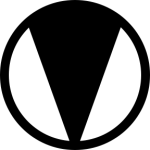I schlepped all the way out to Houston to see the Oracle. Not Houston, Texas—Houston, Mississippi. In Chickasaw County. It’s not an easy journey: six hours by road from our farm if you’re lucky, then eight miles through the brush to the Oracle’s godforsaken shack, which reeks of incense and smoked pig. You get one question for her every three decades. I don’t make the rules, that’s just how her powers work. Eileen and I had recently quit our teaching jobs to start the farm we’d dreamt about for years. I was there to ask whether we’d be able to hack it, whether we’d made the best or worst decision of our lives. I needed to know even if knowing wouldn’t change a thing. So I worked up the courage to ask my question, voice breaking like a prepubescent teen.
The Oracle went into that little trance she goes into, followed by the convulsions. At the end she stared at me, her eyes going pure white before settling back to brown. She composed herself, smoothing down her headscarf, and asked quietly if I wanted to know how I’ll die, her voice timid in comparison to her omniscience.
I frowned. “That’s not what I came here for.”
“I understand,” she said. “But that’s what I saw.”
“Okay,” I said, figuring it’d be better to prepare for that long night rather than crash headlong into it. “Tell me.”
“You’ll be killed by roving opossums,” she said, betraying no emotion. Just stating facts.
The words didn’t quite make sense given the context. Opossums? Roving? I asked her to repeat herself, which she did. I’d heard it right.
“What does it mean to be roving?” I asked.
“From what I could tell, the opossums were transient. They didn’t have a home. Maybe that’s why they go after you,” she said. “They’re lost and scared.”
It seemed like such a random way to go. No meaning to it at all. “So, I just want to double check,” I said. “There’s nothing I can do to stop it from happening?”
“No,” she said. “It’s fated.”
“Dang.”
I went home to tell Eileen the bad news.
She was horrified, worried about me, about living in fear of opossums around every corner. I suggested we plant some trees, give them a home.
“Why?” she asked. “It won’t do you any good.”
She wasn’t wrong. My death was preordained and the Oracle never flubbed a prediction.
“It just feels right,” I said. “I can’t explain it.”
Eileen sighed, perhaps more willing to deal with my whims given the revelation. “Okay,” she said, finally. “If it’ll make you feel better.”
Next morning, we brought home some oak seedlings from the farmer’s market. Oaks, I felt, were a particularly beautiful tree when fully grown. They had heavy graceful limbs that draped down shade, turning a hot day into a pleasant one. Any opossums in the area would surely appreciate these oaks—years from now. Maybe I’d even get to see them grown by the time the opossums came for me.
In the weeks that followed, I learned more about my eventual executioners. I came to respect them. Opossums are wily creatures. When they’re down and out, they mimic the look and scent of a dead animal. They wouldn’t be hoodwinked if I tried to play dead.
Over lunch one afternoon I asked Eileen, “Would it be macabre if we started a opossum sanctuary?”
“It would be ironic,” she said. “But I’m game.”
We made our farm as opossum-friendly as possible. Planted more oaks. Removed all the barbed wire fencing from our land. We kept an eye out for stray opossums, injured opossums caught in traps, baby opossums abandoned by their mothers, and took them back to our place. Once the opossums got here, we mostly let them be. But Eileen did have a favorite that she’d named Daisy, a rescue we’d found wandering alone down a highway a few hundred feet away from her mother’s flattened body. Eileen had sat up all night with Daisy—opossums being nocturnal—stroking her fur and feeding her blueberries until it was morning and they were both asleep.
Years later, we sat out on the porch with cold glasses of water and a bowl of fresh-picked blueberries, looking out over the beautiful things we’d grown. Daisy had nestled into Eileen’s lap, having grown accustomed to daily head rubs. The weather was warm and lovely, a gentle breeze going by every so often, and the sun was just beginning to set below the trees, painting the sky an otherworldly pink and lavender. We could hear bugs chirping or humming or whatever it is they do. I put my arm around Eileen and brushed her cheek. It was wet. I think I knew why she was crying. I kissed away the tears as the opossums skittered in the trees, our lives rich with possibility, our fates assured.


Matt Goldberg‘s fiction has appeared in SmokeLong Quarterly, The Normal School, Porter House Review, and Bending Genres, among others. His work has also been anthologized in Coolest American Stories 2022 and won first place for the 2021 Uncharted Magazine Sci-Fi and Fantasy Short Story Award. He earned his MFA from Temple University and lives with his partner in Philadelphia, PA. Find him on Twitter @mattmgoldberg.
Header photograph and artwork by Jordan Keller-Wilson
Discover more from Vast
Subscribe to get the latest posts sent to your email.
